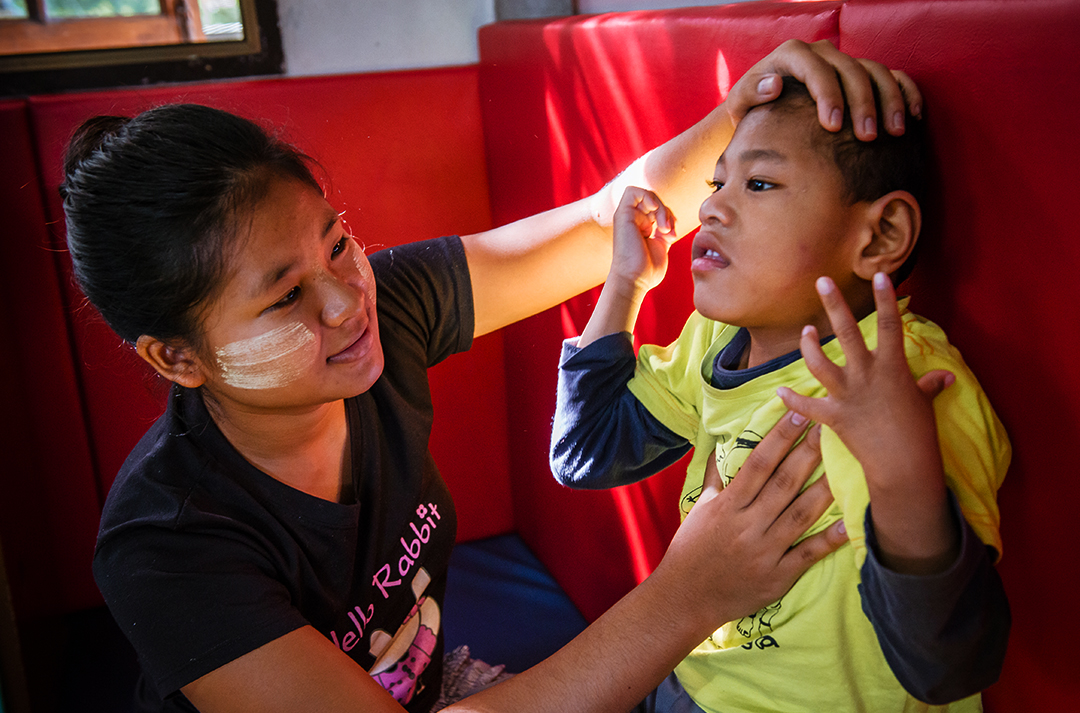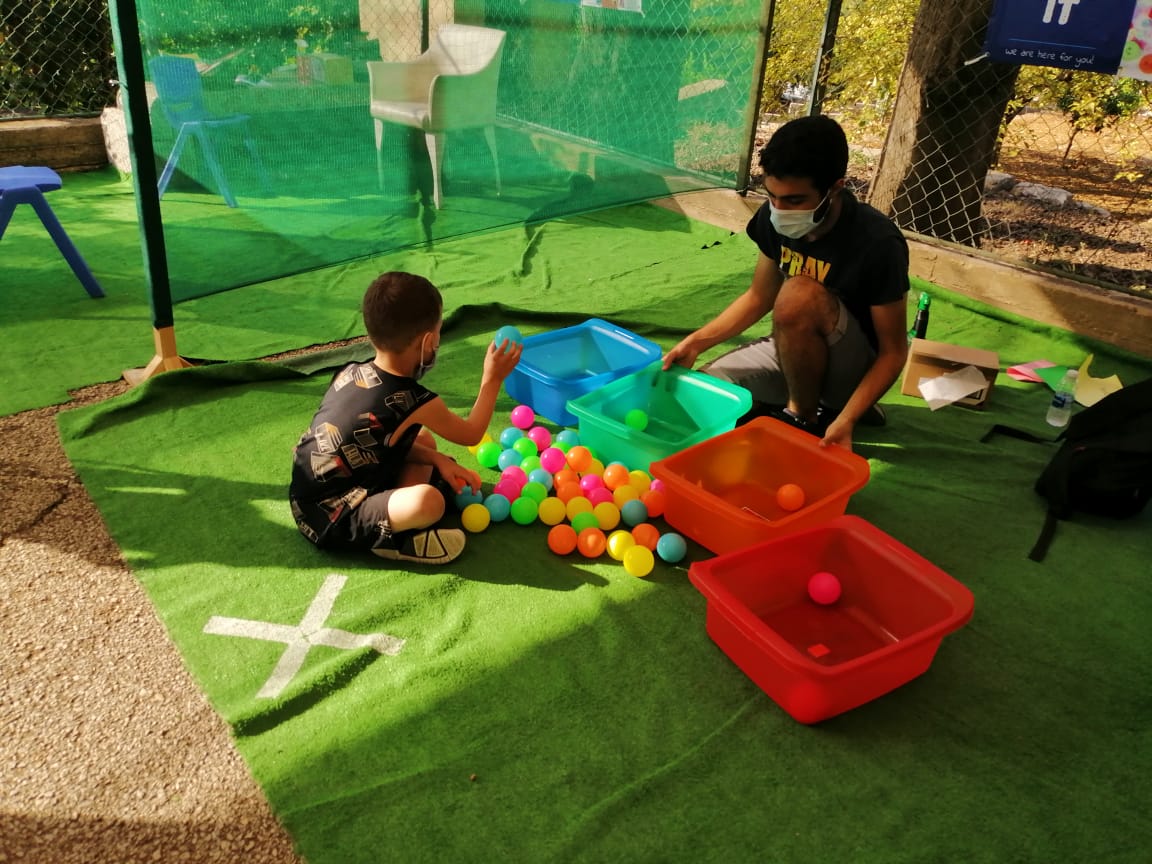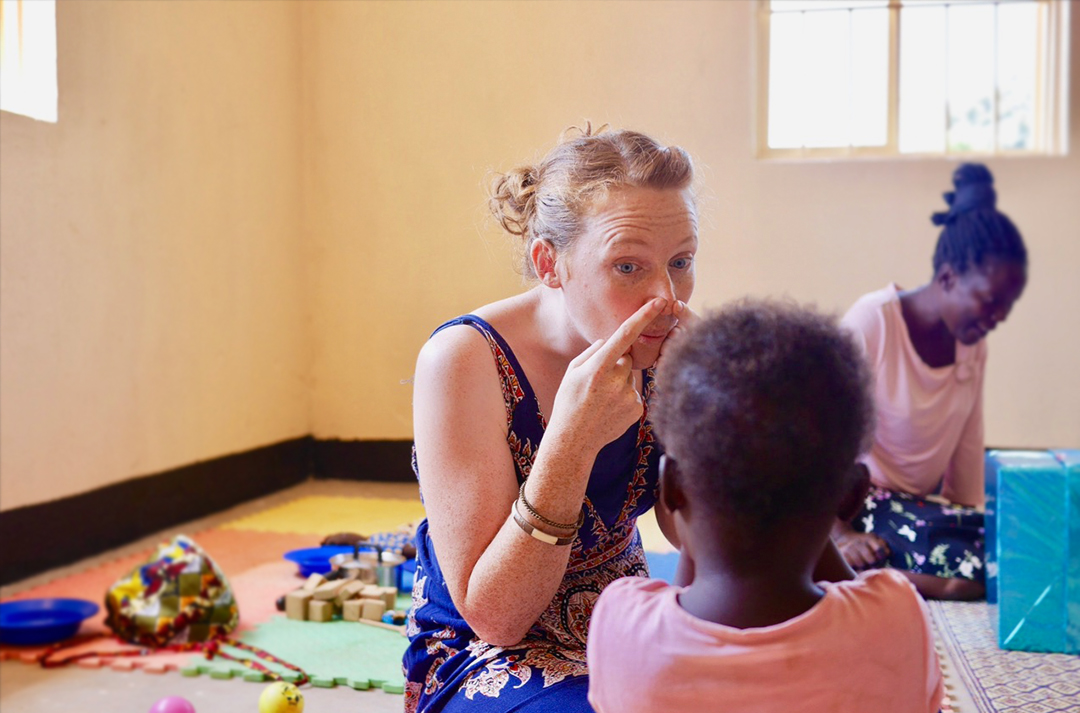The Power of Play
The Power of Play
I could have spoken with them for hours. Creative therapy is making a difference across the world, from Lebanon to Mozambique, Uganda to Thailand, and although each context is different, with every BMS World Mission worker and partner I spoke to, I discovered the same thing: children who have been through unimaginable pain. And how you’re making new ways of healing possible.
She sat in the corner and stared at the wall in her first session. Fatimé was completely disengaged from the world before she started music therapy. Her epilepsy medication makes it difficult for her to stay awake for a whole session, but at least it stops the fitting. BMS music therapist Bethan Shrubsole has been working with Fatimé for seven months. She’s made real progress since the beginning: now she can look directly at her family.
For the uninitiated, music and play therapies might seem like a modern fad, only available to those in the West, and involving expensive, luxury items like sensory toys. But by speaking to BMS therapists from Chad (where Bethan works with Fatimé) to Thailand (where Judy Cook works with Sam), I’m finding the truth is much more encouraging.
Thousands of miles away, lives a little boy whose experiences are very similar to Fatimé’s. Sam is blind and has epilepsy. He also has a brain condition similar to cerebral palsy. He’s been at Hope Home for almost all his life, where BMS worker Judy Cook can give him the support he needs. He’s non-verbal and doesn’t know how to play with the other children. But he likes feeling different textures in his physical therapy sessions, he likes laying on his mat and making scratchy sounds with his fingers. And he loves music. More specifically, he loves The Beatles.

“He’s quite hard to calm down sometimes,” says BMS worker Judy Cook, who founded Hope Home. “But music has always helped.” And for a boy with wild emotions like Sam’s, who can sometimes get so cross he hits himself, keeping calm is an incredibly important part of his therapy. “We put Hey Jude on and it was like a switch went on in his head,” Judy says. The music makes him smile and laugh, and stops him screaming. Playing Hey Jude isn’t going to cure Sam of his epilepsy, but, along with the other therapies Judy and her team are giving to Sam and the other children under her care, it is already making his life better.

And it’s not only children with additional needs like Sam and Fatimé who can benefit from creative therapies. BMS partner the Lebanese Society for Educational and Social Development (LSESD) has been helping children in Beirut in the aftermath of the devastating blast that rocked the city earlier this year. Many of Lebanon’s children have never experienced trauma like this before and don’t have the coping mechanisms to deal with it. So LSESD has started with one of the basics: play.
Daniella Daou and her team at LSESD have set up a sensory playground for children in Beirut, with stimulating play stations, art and storytelling spaces. “The point of the playground is for children to have fun, to de-stress and to express what they’re feeling,” says Daniella. They also have a psychologist present who watches the children’s behaviour and looks at their artwork to see if they’re showing signs of trauma. And the playground isn’t only there to help the children, it’s there to give respite to their parents.
They can take a break while their children play, and can speak to the on-site psychologist to see how their children are coping. Giving their children the opportunity to play in the face of such a tragedy is a key part of their healing process.
Play therapy can also help parents and children to bond and to express love and care in a beautiful way. BMS speech therapist Lois Ovenden tells a story of a mother and son who came to a play therapy session she was running in a clinic in Uganda a few years ago. The boy’s condition was too severe for Lois to give him all the help he needed. “He couldn’t walk, he couldn’t see,” says Lois. “He couldn’t have been more than two.” But for one session, Lois showed his mother some play therapy techniques she could use to interact with her son. “It was so beautiful watching them together,” she says. “The incredible love she had for her child – it almost filled the room.”

Lois only showed the mother some simple techniques, like how touching her son’s face and letting him feel different textures could establish a connection and help him experience fun and beauty. Small things. But they made the boy smile and he started to make soft cooing noises. Lois could tell that he knew his mother, how much he loved her. The beautiful bond they shared, expressed in the only way he could.
Many other parents were sceptical though. They thought that play therapy was only available to those who could afford expensive western toys. But according to BMS play therapist Liz Vilela serving in Mozambique, the opposite is true.
“The best way to connect with a child is for them to use what they’re used to,” says Liz. And BMS therapists are showing this across the world. In Uganda, Lois encouraged parents to make toys out of banana leaves so they can play together with their children. In Chad, Bethan uses an Arabic song in her sessions with Fatimé, because it’s the language her family uses, and it’s what she engages with the most. Meeting people where they are helps families build stronger relationships and it makes creative therapies accessible to so many more people.

Talking to Lois, Judy and Liz, I was constantly reminded of Fatimé. A child disengaged from the world, brought to a fuller life through music and play. Before she started therapy, she did nothing but sit in the corner, separate from everyone around her. But after seven months of sessions, she can now look at her siblings. She claps along to songs. They’re small steps, but for Fatimé and her family, they mean hope. I ask Bethan about her hopes for Fatimé. How would she like to see her progress? “I want her to be able to say ‘Mama’,” she says. For Fatimé, that’s a huge ask. But for a mother to hear her little girl say ‘Mama’ for the first time? That makes all the effort worth it.
Words by Laura Durrant
